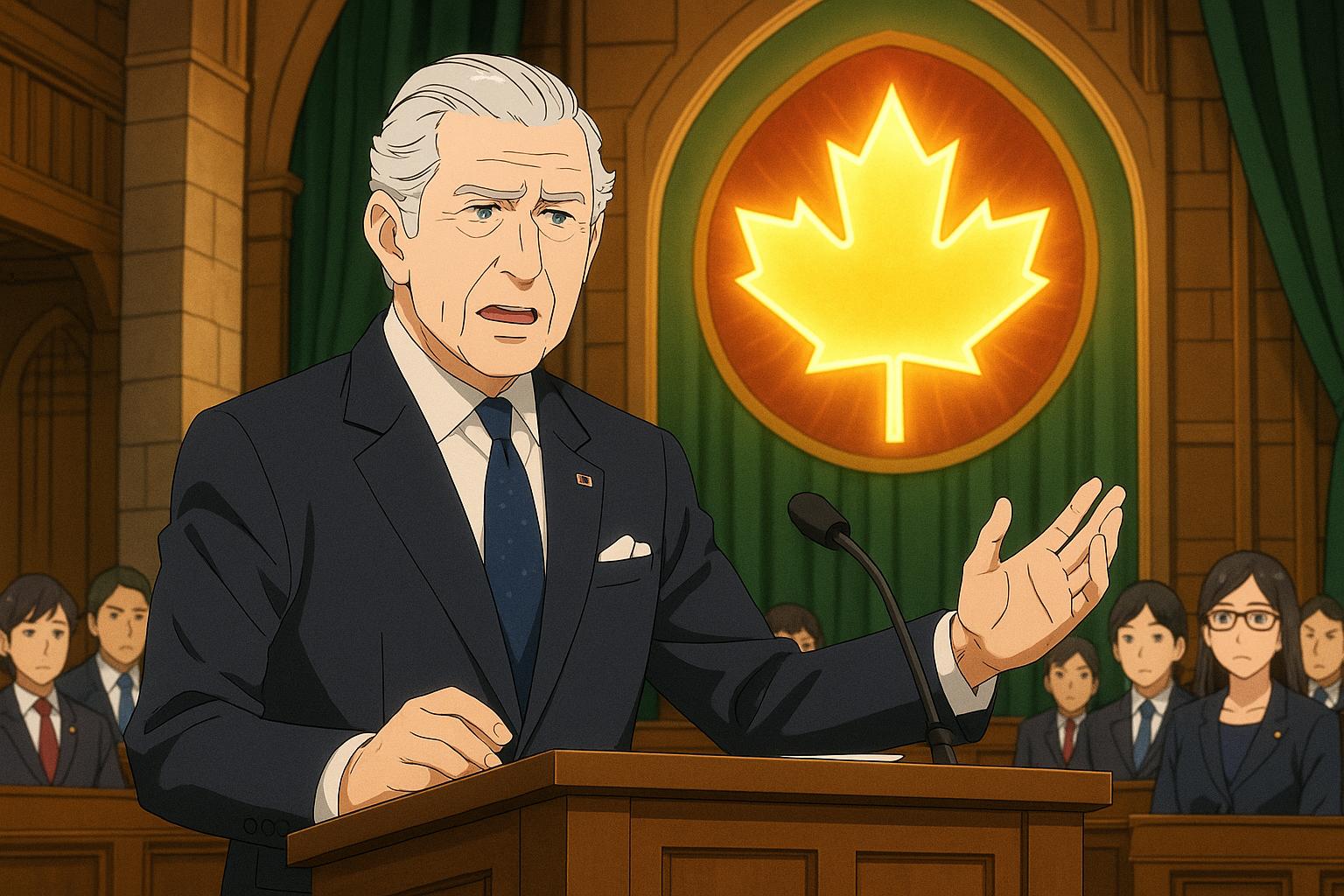King Charles III is poised to deliver a historic address at the opening of Canada’s parliament on 27 May, marking the first time in nearly five decades that a British monarch will present the “speech from the throne.” As tensions rise over U.S. President Donald Trump’s repeated insinuations about Canada becoming America’s 51st state, the timing of the King’s visit is laden with political significance, underscoring Canada’s sovereignty and independence.
Amid ongoing discussions about the future of UK-Canada relations, Prime Minister Mark Carney has welcomed the royal visit as a powerful affirmation of Canadian sovereignty. Observers expect the King's speech to highlight Canada as a strong and independent nation—a sentiment echoed by various Canadian political leaders and commentators. Artur Wilczynski, a former Canadian ambassador, articulated a desire for the King to explicitly reinforce Canada’s status, stating, “Canada is and will continue to be a strong, vibrant and independent nation and that Canada is not for sale at any price.”
While the monarchy has traditionally maintained a politically neutral stance, the current geopolitical climate presents a delicate challenge for Charles. His potential messages of solidarity may need to be carefully crafted to avoid alienating the UK’s relationship with the United States. Speculation is rife that subtle cues delivered during his speech could resonate strongly with both Canadian and American audiences. For instance, prior to this visit, Charles has used symbolic gestures—such as wearing a red tie, representative of Canada, during his meeting with Prime Minister Carney and planting a maple tree at Buckingham Palace—to signal support for Canada amidst international pressures.
Elizabeth May, leader of Canada’s Green Party, argued that any slight allusion to “God Save Canada” during the royal address would resonate positively with the Canadian public. Others, like political commentators, see the invitation for the King to open parliament as a statement resisting any notion of Canadian annexation, insisting that the relationship with the U.S. has change irrevocably in light of past interactions with Trump.
The King’s address is not merely ceremonial; it arrives during a wave of Canadian sentiment towards greater autonomy and increased wariness of U.S. influence. According to Mark Carney’s remarks, Canadians were not impressed by the UK’s earlier invitation for Trump to visit during a time of heightened concerns about sovereignty. His insistence that “there are some places that are never for sale” captures the sentiment of many Canadians regarding their national identity.
As the day approaches, Charles’s role as head of state becomes increasingly significant. Critics and supporters alike will scrutinise his every word and gesture for indications of support—or lack thereof—for Canada’s sovereignty. This unprecedented royal visit heralds a pivotal moment not only for the relationship between Canada and the UK but also for Canada’s stance on its independence amid foreign pressures.
The symbolic weight of this event, viewed through the lens of ongoing international relations, serves as a reminder of the intertwined histories of Canada and the UK while also offering a platform for Canada to assert its autonomy in the modern world. Ultimately, the speech stands to become an enduring statement that could redefine perceptions of Canada’s relationship with the U.S. and its place within the Commonwealth family of nations.
Reference Map
- Paragraphs 1, 2, 3, 4
- Paragraphs 1, 2, 4, 6
- Paragraphs 1, 2, 4, 6
- Paragraphs 2, 4, 5
- Paragraphs 3, 5
- Paragraphs 1, 4, 6
- Paragraph 1
Source: Noah Wire Services
